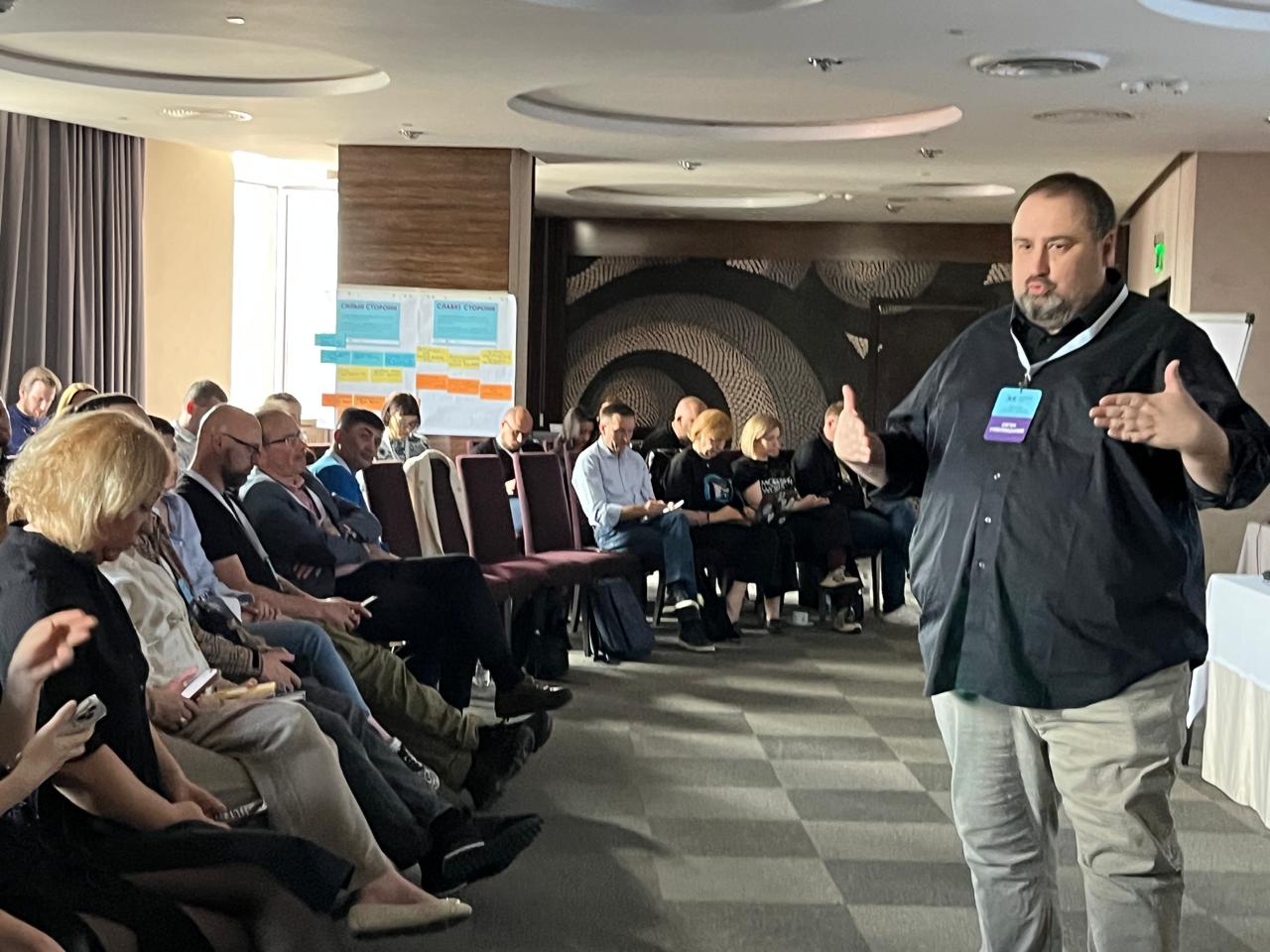
During the foresight event on the Looking into the Future of Ukrainian Democracy, organized by ISAR Ednannia with the support of the Norwegian-Swedish Askold and Dir Fund, operating under the Strong Civil Society of Ukraine – a Driver Towards Reforms and Democracy Project, implemented by ISAR Ednannia and funded by Norway and Sweden, key presentations took place outlining the future challenges for Ukrainian democracy.
One of the speakers, Yevhen Hlibovytsky, a long-term strategy expert, Director of the Frontier Institute, and member of the Supervisory Board of Suspilne, delivered a reflection on the short-term directions for civil society development on Joint Leadership Actions for Preserving the Country. In his address, he highlighted the following key themes:
- The Ukrainian governance model is a unique transitional yet resilient model that combines horizontal structures with a new form of verticality.
- European integration should be a two-way street, where not only does Ukraine integrate into the EU, but the EU also integrates with Ukraine. Complete one-sided harmonization of legislation may be harmful.
- Ukrainian poverty limits the central government's ability to establish a dictatorship due to a lack of resources for centralization. However, the emergence of significant resources could create a ‘resource trap’.
- The issue of culture and cultural change among Ukrainians is one of the most important processes currently underway, and it is happening at an unprecedented pace.
- Soviet industrialization, although imposed, gave Ukrainian society the capacity to handle complex decisions and abstract concepts, which is evident today in the rapid innovation cycles in drone development.
- The trauma experienced by Ukrainians may motivate them not to repeat past political choices.
- Free local elections can generate genuine legitimacy for power and serve as a backup in times of crisis.
- Democracy in Ukraine requires coherent rules, not foreign model replication.
- Political tolerance will be a future challenge due to accumulated trauma.
“We possess a level of resilience that exceeds projections − and that too is, to some extent, dangerous. Because we cannot blindly rely on this resilience. There comes a moment when all discussion breaks down when trust is exhausted. Everything we’re going through doesn’t pass without a trace − there will be a price to pay. And most likely, we will pay with political tolerance for things we would otherwise find unacceptable, and with political crises. Yet, even in this situation, Ukrainians continue to impress with how they endure the blows. It’s a level of societal endurance that no one expected − not even ourselves,” said Hlibovytsky.
The foresight in Truskavets brought together around 80 civil society representatives, the government, and international partners. Together, they developed scenarios for democratic development and discussed the first post-war elections, decentralization, ethical challenges, and cultural transformation.
The foresight was not just a dialogue about the future − it served as a platform for strategic cooperation to safeguard Ukrainian statehood, identity, and resilience.
